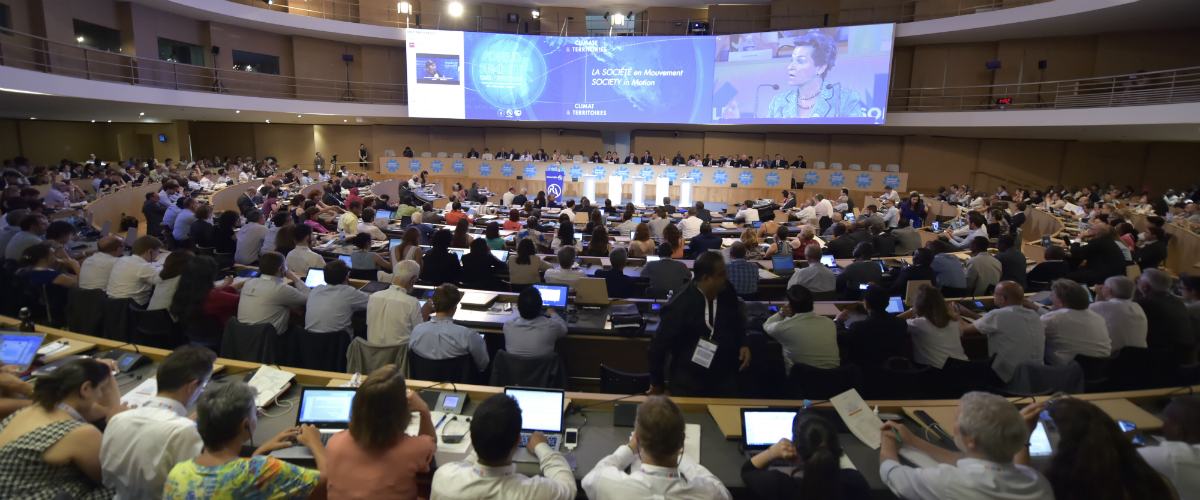Regions are seeking joint responses to Climate Change

Representatives of regions and cities from around the world met last 1st and 2nd of July in Lyon, in ORU’s French region of Rhône-Alpes, for the World Summit on Climate and Territories, one of the largest meetings as far as climate change is concerned. The main aim of the event, preparatory for the Paris COP21, was to set up the future mechanisms and engagements with a territorial and regional approach to tackle climate change and reduce carbon emissions by the year 2020.
ORU has participated in the Summit through the organisation, together with ROPPA (Réseau des Organisations Paysannes & de Producteurs de l'Afrique de l'Ouest) of an Agriculture workshop with the cooperation of FAO and the AVSF (Agronomes et Vétérinaires Sans Frontières - Association de Solidarité Internationale pour les Agricultures Paysannes et Familiales). The aim of the workshop, held on the 2nd of July, was to reach consensus on the adoption of a territorial action plan with strong, transversal and global proposals for the rural and agricultural development. One of the areas of greater concern was the rural exodus that is causing a critical depopulation of rural areas and an accelerated urbanisation of the cities. "In 2050, according to current forecasts, 80% of the population will live in the cities", stated Carles Llorens, ORU’s secretary general, "it is therefore essential to halt the rural exodus and to give an appropriate balance to territories".
ORU’s commitment with the decisions made in the World Summit on Climate and Territories was reflected in the signature of the General Declaration “Establishing a territorial action policy in response to the climate challenge”. Signed by 50 organisations in representation of local and regional governments, among which ORU and many of its members, the declaration has become the most supported to date by non-state actors. Other representatives from ORU’s members present at the Summit were nrg4SD, the Government of the State of Rio de Janeiro, ARF, AIRF, the Champagne-Ardenne region and the governments of Catalonia and Euskadi. Amongst the general conclusions of the event, we could highlight the need to mobilize non-state actors in the decision-making processes and the leading of new initiatives in the fight against climate change. Local, regional and territorial action is essential to create possible and real scenarios for climate’s stabilization.
Related news:
- Nrg4SD at the World Summit Climate & Territories in Lyon / nrg4SD and FNAU fostering action for urban and regional planning
Image: © Frank Trabouillet / RRA / © Région Rhône-Alpes








































































